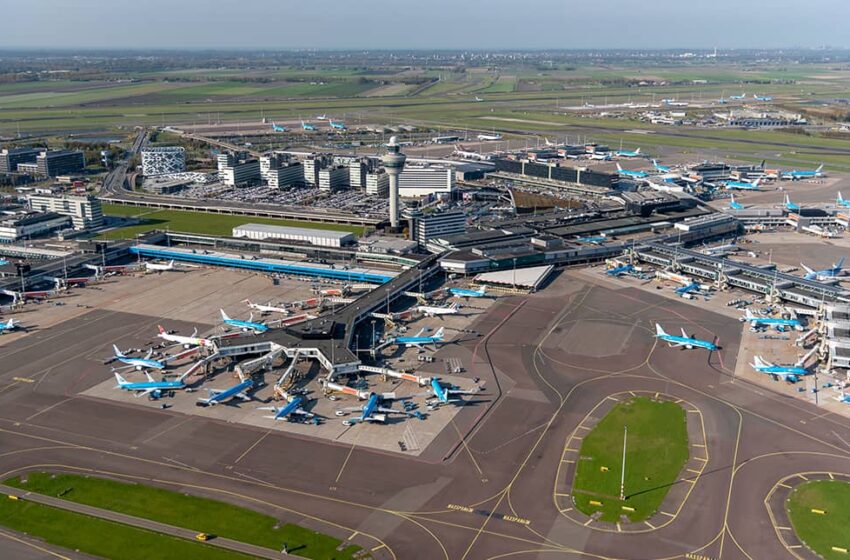
Schiphol Group Increase Airport User Charges for Airlines
Royal Schiphol Group has announced its plans to increase the Schiphol airport charges (airlines using the airport) by 37% in next three years. Due to this, the airlines will pay Schiphol an average of $16.34 more for a local departing passenger in 2027 compared with 2024.
The Group said that the increase in charges was driven by exceptionally high inflation and sharply increased interest rates over the past three years. The charges also include compensation for the losses made during the pandemic years. The charges will increase by 41% in 2025 and 5% in 2026 and decreasing by 7.5% in 2027.
To mitigate the impact of these regulated charges on airlines, Schiphol has reduced the potential charges by making a $108.93 million voluntary contribution to keep the charges as low as possible without compromising Schiphol’s ability to operate the airport.
With these charges, Schiphol will make the necessary investments in good infrastructure, better services for passengers and airlines and improved working conditions possible. Schiphol needs to invest $6.54 billion in the airport over the next five years and this will be used for maintenance and for quality improvements for passengers and airlines.
In line with the ambition to reduce noise nuisance, Schiphol is using these charges to encourage airlines to use their quietest planes. The charges for quieter aircraft are going to be less expensive, while older, noisier planes are going to cost airlines more.
Night flights will become approximately three to six times more expensive than a daytime flight, depending on the aircraft type. With these new charges, Schiphol can more strongly incentivise the deployment of a quieter and cleaner fleet.
The night flights will also be subjected to additional charges. There is a category of aircraft that make so much noise that they will be banned as of 2025, the airport said.
Royal Schiphol Group CEO Robert Carsouw said that this sharp increase in charges was necessary to invest in the desired quality and sustainability at Schiphol, to improve services to airlines and passengers, and to provide decent working conditions for all people working at Schiphol.
“In addition, by making it significantly more expensive or even impossible to fly with noisier aircraft and to fly at night, we are contributing to the reduction of nuisance to our neighbours,” he said in a post on X (formerly twitter).
What is Airport Charges?
Charges at Schiphol are set once every three years and are laid down in legislation and regulations, overseen by the Consumer and Market Authority (ACM).
Schiphol’s current charges were set in 2021 and do not include corrections for the exceptionally high inflation, sharply increased interest rates and operating costs over the past three years. Therefore, the rates from 2022 to 2024 are around $599.09 million, lower than what was needed to cover the costs Schiphol incurs in providing services to airlines.
KLM’s Response
KLM, the Dutch national carrier, flayed Schiphol Airport for increasing the charges and said that with the decision, Schiphol will become the second most expensive airport in Europe.
This increase comes on top of the 40% tariff increase over the past three years. This has major implications for both travellers and the aviation sector. As the costs of setbacks at Schiphol are passed on to airlines, higher ticket prices for travellers are inevitable.
KLM CEO Marjan Rintel said that Schiphol was shifting additional costs of setbacks and budget overruns largely to the traveller. More expensive tickets were inevitable if the airport charges were hiked so drastically.
“This is unreasonable and unwise. Unreasonable, because Schiphol is placing the costs of all setbacks and Covid-19 entirely on the airlines. Unwise, because in doing so, the airport undermines its competitive position as an international hub. This poses risks for the hub function, the connectivity of the Netherlands, and our economy,” Rintel added.















